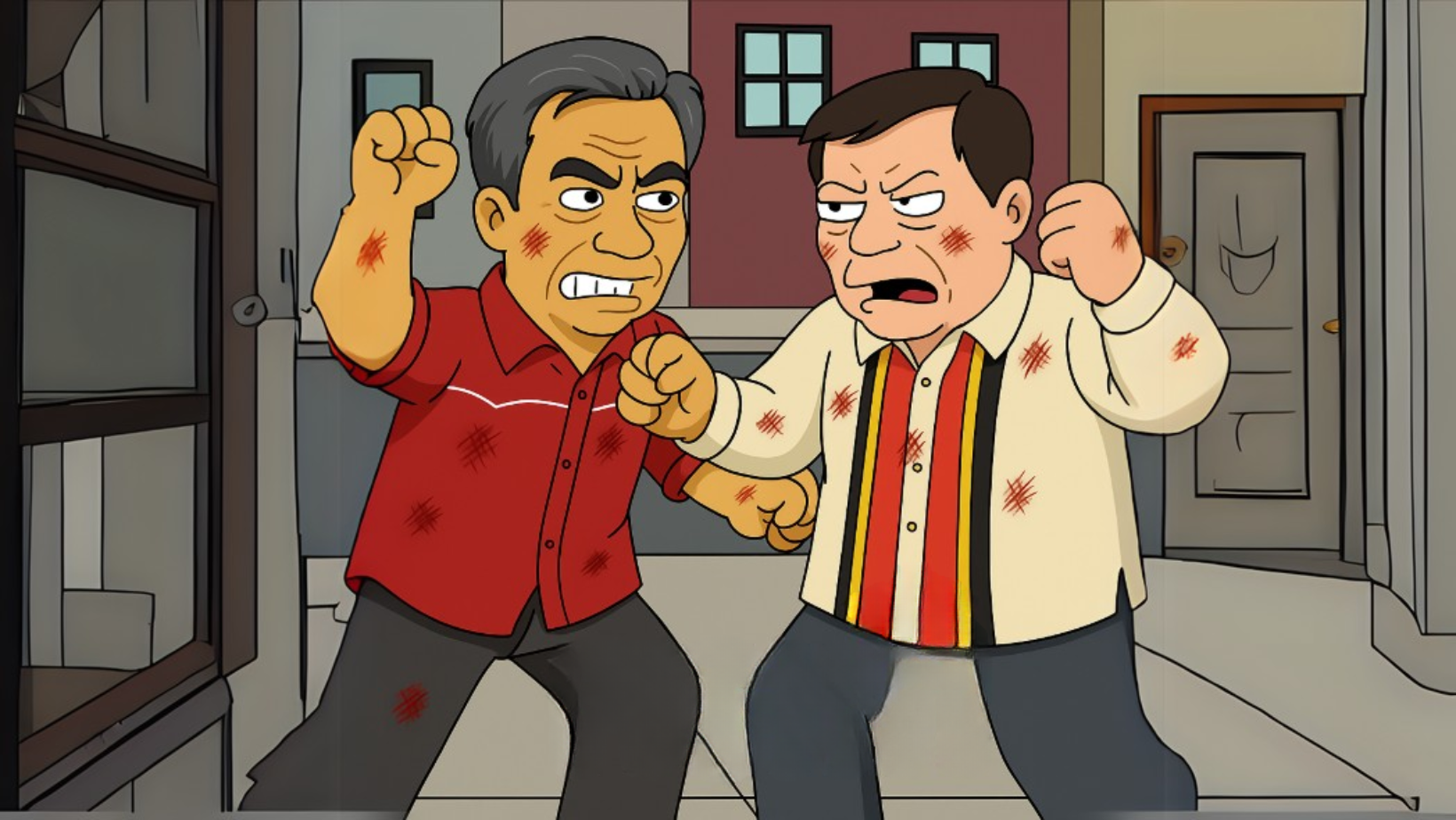Too Old, Too Much, Too Late? Aliping’s Quiet Jab Lands Loudly on an "overaged Candidate"
Andy Ignacio — April 20, 2025
Too Old, Too Much, Too Late?
Aliping’s Quiet Jab Lands Loudly on an "overaged Candidate"

You don’t really hear much about him these days—and maybe that’s the problem.
Former Congressman Nicasio “Nick” Aliping Jr. has been a ghost in Baguio’s political landscape. Once a name that carried weight, now just another face in the crowd. No headline-making statements. No commanding presence online or on the ground. Just silence. And in politics, silence is dangerous—it means you're being forgotten.
So when Aliping finally broke his quiet with a not-so-subtle jab at a candidate who he refers to as "overaged", it felt less like strategy and more like desperation. A calculated punch thrown not to knock someone out, but just to remind people he's still in the ring.
In his recent sit-down with RNG Luzon, Aliping delivered a line that landed like a well-aimed jab—and no, it wasn’t directed at Sol Go. It was aimed squarely at former Mayor and Congressman Mauricio Domogan.
Without naming names, Aliping spoke of a congressional candidate who is “tried and tested,” but whose old age may become a hindrance in performing legislative duties. And let’s be honest—we all know who he meant.
Sol Go may be in her seventies too, but unlike Domogan, she’s never held legislative office. No lawmaking experience. Just a reputation for philanthropy—and for playing cheerleader to her husband, Congressman Mark Go. Now, with both running for the city’s top posts, critics aren’t calling it public service. They’re calling it what it looks like: a dynasty in the making.
So when Aliping talks about someone with both leadership and legislative credentials, the subtext isn’t subtle. He’s drawing a line—and aiming it squarely at Domogan.
And then comes His flex.
Aliping points out that he, too, has already served in the House of Representatives. Elected in 2013, he knows the landscape. The difference? He’s younger. Fresher. Still with fuel in the tank.
Domogan may have been around longer, but in Aliping’s words, there is such a thing as being overqualified, overexperienced—and yes, overaged.
In every caucus he attends, Aliping reminds the public that all candidates are “qualified.” He’s right, of course. The Constitution doesn’t ask for much—just that you’re at least 25, can read and write, and have lived in the district for a year. That’s it. That’s the bar. Anyone who meets it can run. Thanks for the reminder, Captain Obvious.
So yes, they’re all “qualified.” But does that mean they’re fit?
Aliping, makes a cultural point that resonates:
It’s taboo for Filipinos to let our elders work on our behalf. If there’s work to be done—let the young ones do it.Let the elders rest.”
Then comes the "respectful" nod: "Lakay ngaruden, nagado met ti naaramid na.” He calls Domogan a role model. A man who’s done enough. But even role models need to know when to bow out gracefully.
But here’s the thing—Aliping isn’t walking into this race unscathed.
Aliping has ghosts. And one of them still haunts the city’s memory: the controversial cutting of trees in Santo Tomas.
Aliping, once cleared in court over the Mt. Sto. Tomas controversy, remains stained in the court of public opinion. His acquittal might’ve erased legal consequences, but for many, the trust he once held didn’t survive the landslide of public outrage.
The law may have cleared him, but the people haven’t.
The damage was never just about bulldozers tearing through a forest reserve. It was about accountability—about a city that values its environment the way it values its identity. In Baguio, trees aren’t just trees. They’re monuments of the city’s culture and survival.
Aliping claimed the land was private property. The courts sided with him. The public didn’t. Bulldozers rolled in without the proper permits, tearing through the mountainside. The forest may be on its way to recovery—but the political scars haven’t faded.
Both Aliping and Domogan are stepping into a fractured arena. The once-unified Igorot vote—once their dependable stronghold—is now split four ways: Aliping, Domogan, Cosalan and Camtugan. One bloc. four contenders. No clear path.
Aliping’s losing streak in Congress marked a turning point and maybe, just maybe, it was a hint: that despite his youth, the people haven’t—and won’t—forget what happened in Santo Tomas.
Whether either of these men can ride the shifting tide—or be dragged under by it—isn’t something the courts or campaign jingles and cringy dance numbers can decide.
Because in this race, the voters aren’t just choosing a representative. They’re choosing who they’re willing to forgive. Who they’re willing to trust. And who still carries a vision beyond recycled politics, long-expired reputations, and clumsy grabs at relevance.
In a contest clouded by ghosts of felled forests and overstayed welcomes, someone like Gladys Vergara—calm, deliberate, and unburdened by political baggage—starts to look less like an underdog, and more like the grown-up in the room.
While the old guards jab and duck, she simply stands—quiet, steady, and possibly, exactly what Baguio needs right now.
This race won’t be won by seniority or slogans. It’ll be won—or lost—on trust. And sometimes, the one who isn’t throwing punches ends up landing the biggest one of all.




